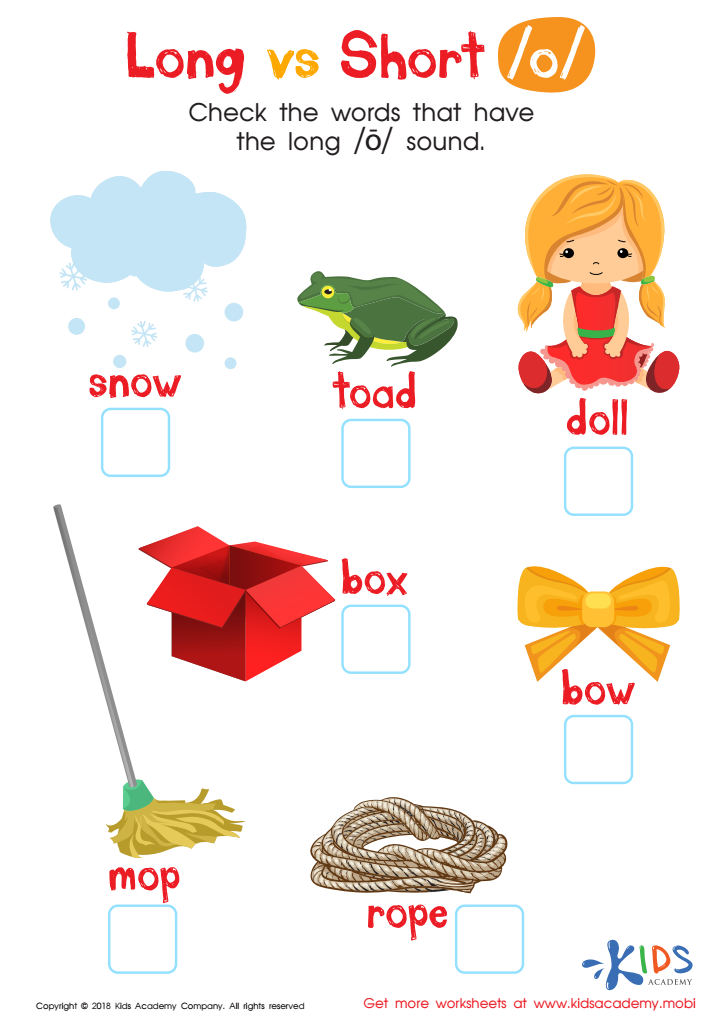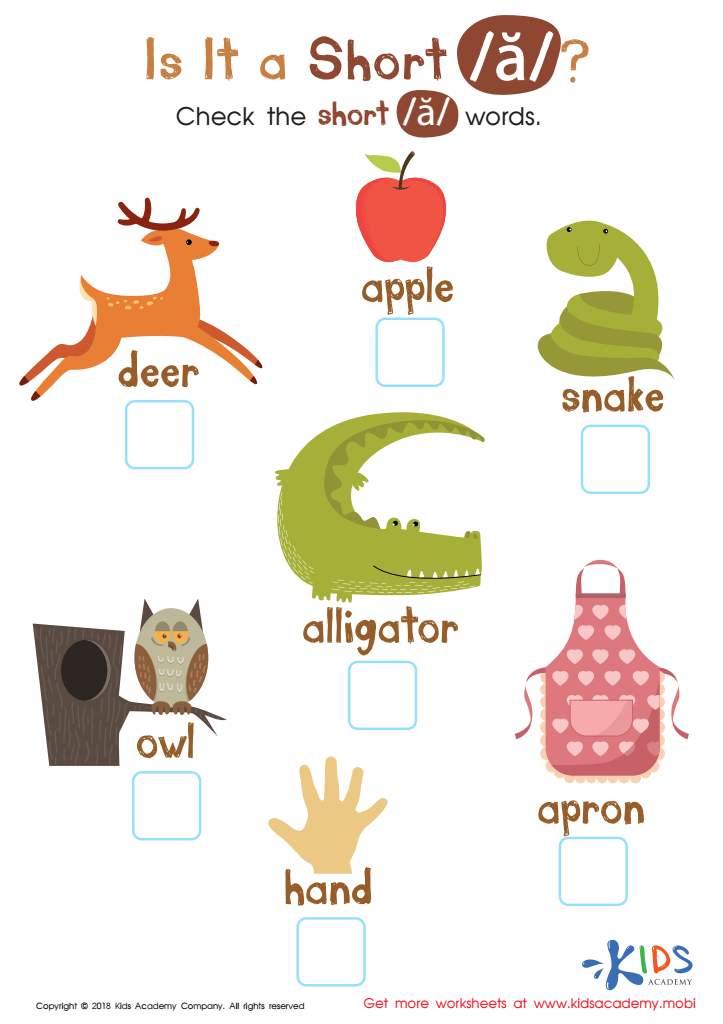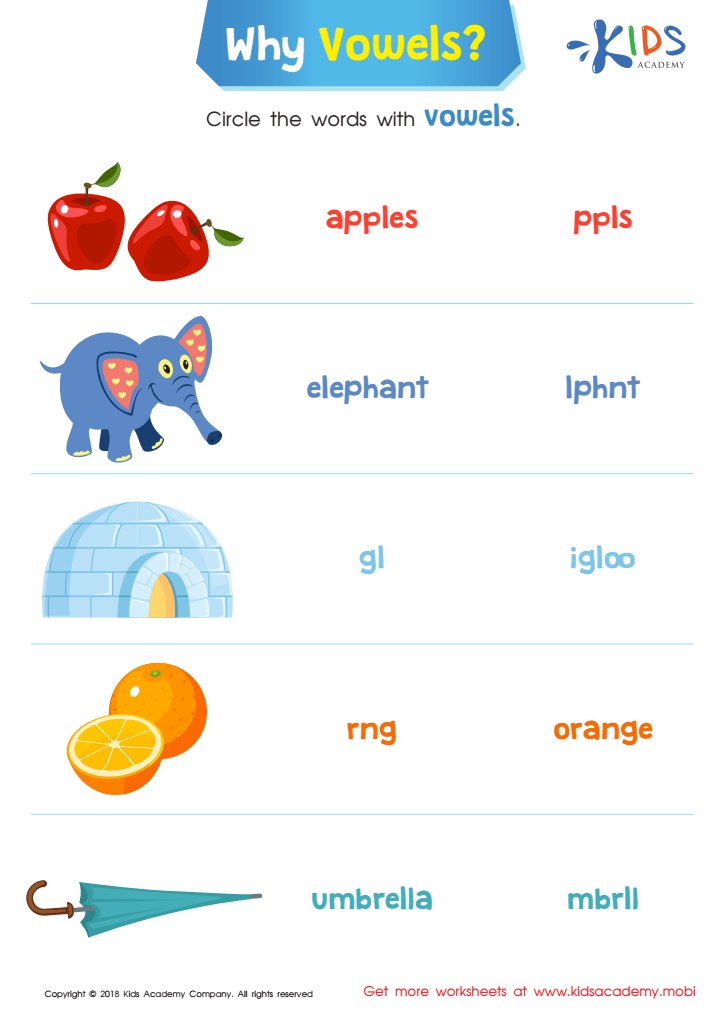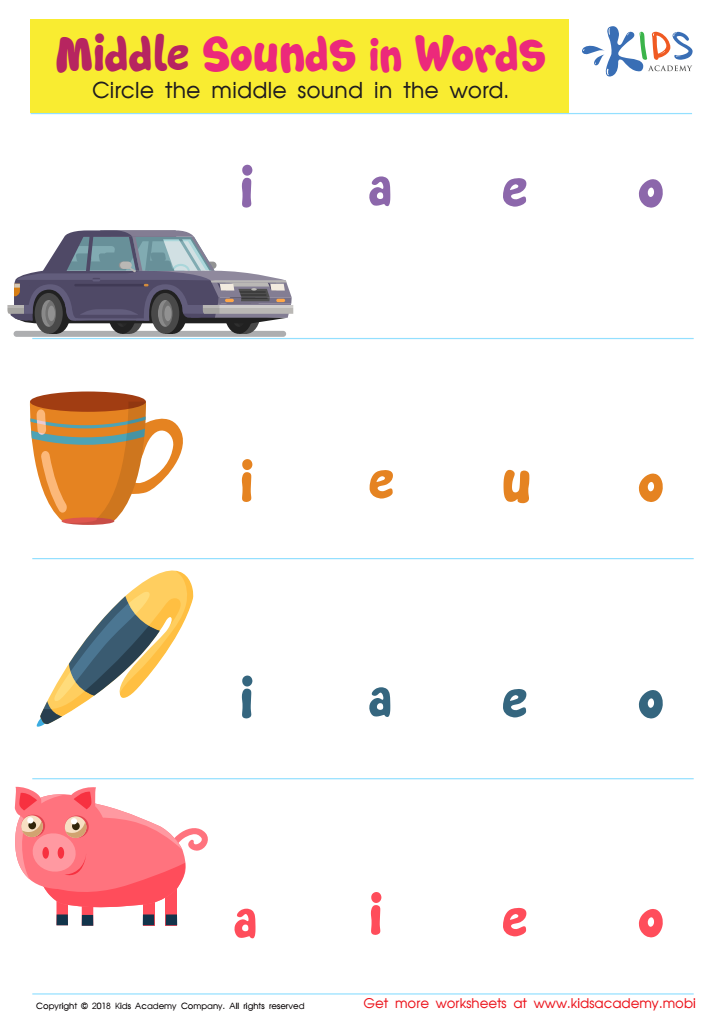Vocabulary development Normal Vowels Worksheets for Ages 3-6
5 filtered results
-
From - To
Our "Vocabulary Development: Normal Vowels Worksheets for Ages 3-6" offer engaging activities designed to boost early language skills. Tailored for young learners, these colorful worksheets help children recognize, pronounce, and use basic vowels in everyday words. By integrating playful exercises like matching, tracing, and coloring, we ensure that learning vowels becomes a fun and educational experience. Perfect for both classroom and home use, our resources encourage young minds to build a strong vocabulary foundation, setting the stage for future reading and writing success. Start the journey of vocabulary development with our expertly crafted vowels worksheets today!


Long vs Short O Reading Worksheet


Vowel and Consonant Sounds: Assessment Worksheet


Is It Short A? Reading Worksheet


Why Vowels? Reading Worksheet


Middle Sounds in Words Worksheet
Vocabulary development is a cornerstone of early childhood education, and it plays a crucial role in setting the foundation for literacy and overall academic success. For children aged 3-6, acquiring new words helps them to express their thoughts, ideas, and emotions more effectively, which is vital for social and emotional development. At this stage, normal vowel sounds form a significant part of a child's pronunciation skills. Mastery of vowels aids in clearer speech, making it easier for children to be understood by others, thereby boosting their confidence and willingness to communicate.
Parents and teachers play pivotal roles in enriching a child's vocabulary. Reading to children, engaging in conversations, and introducing them to new concepts help in the acquisition of vocabulary. Educational games, songs, and activities designed around vowel sounds can make learning engaging and enjoyable. Well-developed vocabulary at this early age is also an indicator of future reading ability. Children who start school with a robust vocabulary are more likely to excel in reading comprehension and written expression, crucial for academic success across all subjects.
Therefore, investing time and resources into vocabulary development and ensuring children understand and use normal vowels is not just about language skills; it’s about equipping them with the tools for lifelong learning and effective communication.
 Assign to My Students
Assign to My Students











